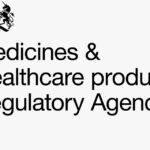Medical aesthetics and veganism intersect in complex and fascinating ways, particularly in the UK, where both industries have seen significant growth over recent years. The surge in popularity of veganism, driven by ethical, environmental, and health concerns, has influenced various sectors, including cosmetics, skincare, and medical aesthetics. This raises the pertinent question: can any medicine or medical aesthetic treatment be truly vegan in the UK?
The Landscape of Medical Aesthetics in the UK
Medical aesthetics encompasses non-surgical cosmetic treatments designed to enhance physical appearance. These include botulinum toxin injections (commonly referred to as Botox), dermal fillers, chemical peels, microneedling, laser treatments, and other advanced skincare procedures. The industry has grown exponentially in the UK, with people seeking minimally invasive procedures to rejuvenate their skin, reduce signs of aging, and improve their overall appearance.
Ethical considerations have become increasingly relevant in medical aesthetics, paralleling broader societal shifts toward sustainability and animal welfare. Veganism, in particular, challenges the medical aesthetics industry to examine the origins, testing practices, and ingredients of its products.
What Does Veganism Entail?
 Veganism is a lifestyle that avoids the use of animal products and seeks to minimize animal exploitation and cruelty. This extends beyond diet to include clothing, cosmetics, and other consumables. For a product to be considered vegan, it must not contain any animal-derived ingredients or be tested on animals at any stage of production.
Veganism is a lifestyle that avoids the use of animal products and seeks to minimize animal exploitation and cruelty. This extends beyond diet to include clothing, cosmetics, and other consumables. For a product to be considered vegan, it must not contain any animal-derived ingredients or be tested on animals at any stage of production.
In the UK, veganism has gained significant traction, with over half a million people identifying as vegan, according to the Vegan Society. This growing demographic has led to increased demand for vegan-friendly options in various industries, including healthcare and medical aesthetics.
The Challenges of Veganism in Medicine
The medical field presents unique challenges for veganism. Medications, including those used in medical aesthetics, often involve animal testing and may contain animal-derived ingredients. This is due to stringent regulations designed to ensure safety and efficacy.
Animal Testing
 Animal testing is a legal requirement for many medicines and medical devices under UK and EU laws. While the UK government has committed to reducing animal testing, it remains mandatory for certain products to meet safety standards. For example, botulinum toxin products undergo animal testing as part of their regulatory approval process.
Animal testing is a legal requirement for many medicines and medical devices under UK and EU laws. While the UK government has committed to reducing animal testing, it remains mandatory for certain products to meet safety standards. For example, botulinum toxin products undergo animal testing as part of their regulatory approval process.
Even in cases where animal testing is not explicitly required, many pharmaceutical companies test on animals to comply with international regulations or to validate the safety of their products.
Animal-Derived Ingredients
Many medical aesthetic products contain animal-derived ingredients. For instance:
- Botulinum Toxin (Botox): While the active ingredient itself is not derived from animals, the production process may involve animal-based mediums.
- Dermal Fillers: Some dermal fillers contain hyaluronic acid, which can be derived from animal sources such as rooster combs. However, synthetic or bio fermented versions are available.
- Collagen-Based Products: Collagen is often sourced from bovine or marine origins.
Vegan-Friendly Alternatives in Medical Aesthetics
Despite these challenges, the demand for vegan-friendly options has driven innovation in the medical aesthetics field. Some companies are developing products that align with vegan principles by using synthetic or plant-based ingredients and avoiding animal testing wherever possible.
Vegan Dermal Fillers
Many modern dermal fillers use hyaluronic acid derived from bacterial fermentation rather than animal sources. These fillers are not only vegan but also biodegradable and biocompatible, making them a popular choice in the UK market.
Cruelty-Free Skincare Products
A growing number of cruelty-free and vegan skincare brands offer products for use alongside medical aesthetic treatments. These products are free from animal-derived ingredients and have not been tested on animals, aligning with vegan ethics.
Can Any Medicine Be Truly Vegan in the UK?
The question of whether any medicine can be truly vegan is complex. While certain treatments and products may be free from animal-derived ingredients and not tested on animals, the broader regulatory framework complicates the issue.
Regulatory Requirements
 UK and EU laws require rigorous testing for medicines and medical devices, including animal testing in many cases. This makes it impossible for most medicines to be entirely vegan under the strictest definitions.
UK and EU laws require rigorous testing for medicines and medical devices, including animal testing in many cases. This makes it impossible for most medicines to be entirely vegan under the strictest definitions.
Ethical Dilemmas
For vegans, using medicine or medical aesthetic treatments often involves navigating ethical dilemmas. The decision to prioritize personal health or appearance over strict adherence to vegan principles can be deeply personal and nuanced.
Progress and Advocacy
There is a growing movement advocating for alternatives to animal testing and the development of fully vegan medicines. Advances in technology, such as in vitro testing and computer modeling, offer promising pathways for reducing reliance on animal testing.
The Future of Veganism in Medical Aesthetics
The future of veganism in medical aesthetics looks promising as consumer demand drives innovation and ethical considerations gain prominence. Some key trends include:
- Increased Transparency: Companies are becoming more transparent about their ingredients and testing practices, making it easier for consumers to make informed choices.
- Technological Advancements: Innovations in biotechnology and synthetic biology are paving the way for vegan-friendly alternatives to traditional ingredients.
- Legislative Changes: Continued advocacy for alternative testing methods may lead to changes in regulatory requirements, reducing the need for animal testing.
- Consumer Education: Educating consumers about vegan options in medical aesthetics can empower them to make ethical decisions.
Conclusion
The intersection of medical aesthetics and veganism in the UK highlights both challenges and opportunities. While the regulatory landscape and reliance on animal-derived ingredients present obstacles, the growing demand for ethical options is driving progress in the industry. Although no medicine or treatment may be entirely vegan under current regulations, significant strides are being made toward more ethical and sustainable practices. For vegans navigating the medical aesthetics field, the journey involves balancing personal values with available options, all while advocating for a more compassionate and inclusive future.
